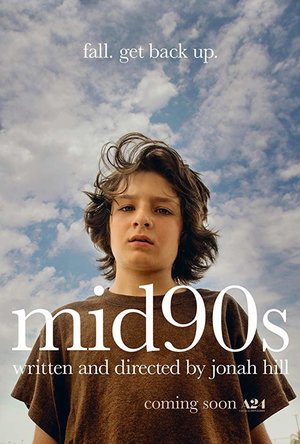
Notebooks, Volume 1, 1998-99: Volume 1
Book
"For a long time, it was not clear if I would become a writer or an artist," says Anselm Kiefer,...
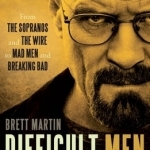
Difficult Men: From The Sopranos and The Wire to Mad Men and Breaking Bad
Book
In the late 1990s and early 2000s, a wave of TV shows, first on premium cable channels like HBO and...
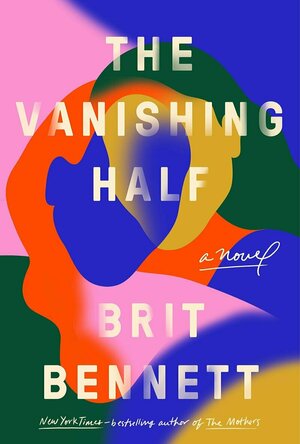
The Vanishing Half
Book
'The Vanishing Half is an utterly mesmerising novel. It seduces with its literary flair, surprises...
David McK (3180 KP) rated Quantum Leap: Carny Knowledge in Books
Jul 23, 2023
Recently, I've started watching the Paramount+ revival of one of my favourite 'tweenage' years shows.
I'm not yet - as of the time of writing - sold on it.
Having watched an episode or two, I thought I would revisit the original, albeit in literary rather than audiovisual form - I know that, in the past, I had read Quantum Leap 00: Too Close for Comfort and Knights of the Morningstar, but I had never read this one. When I cam across it, therefore, I thought I would give it a go.
I have to say, also, that - unfortunately - I just wasn't really all that impressed by it. I don't know whether that's because this was #1 in the book series, or because of the subject matter - being from the UK, carnivals (and the people who run them, known as Carnies (or so I've heard) ) aren't really all that much of a thing here! Nor do I particularly like roller-coasters ...
In this, Sam finds himself in the body of one such 1950 Carnie, a childhood polio survivor, who seems to have visions of the future in which people die after a roller-coaster derails on its maiden run, with all the hopes and dreams of the Carnival workers pinned on that roller coaster. This, I found, was bit slow in starting, although it did pick up towards the end! There's also segments in the (1990s!) future, showing what is missing from the revival in the Waiting Room, and explains a bit better than that revival does why Al is Sam's hologram as opposed to Addison being Ben's.
Worth a read for nostalgia factor, maybe.
Gareth von Kallenbach (965 KP) rated Mid90s (2018) in Movies
Jul 2, 2019
Sunny Suljic plays 13-year-old Stevie, a quiet and often confused boy looking to escape his bleak and abusive home life by connecting with a group of local skater kids. While Suljic absolutely steals the show with his superb acting, his (mostly no name) costars deserve massive kudos for this endeavor as well. Lucas Hedges (Manchester by the Sea, Three Billboards outside of Ebbing Missouri) plays Stevie’s abusive older brother Ian. Though he is quickly established in the opening shot as the antagonist, his character arc throughout the film is one of the greatest and you find yourself soon empathetic to his plight nearly as much as Stevie’s. The skater gang is comprised of Ray (Na-kel Smith), Fuckshit (Olan Prenatt), 4th Grade (Ryder McLaughlin) and Ruben (Gio Galicia). These four seem apathetically content to take Stevie under their wing after he begins hanging out at their skate shop. During this time they expose Stevie to a world of drinking, smoking, drugs and sex as well as a complex set of personalities that Stevie struggles to understand but tries desperately to emulate. This reverence begins to lead him down a path that worry not only his mother and brother, but also occasionally members of his new social group. The actors playing his newfound friends all bring a beautiful authenticity to their roles. They certainly aren’t playing “themselves”, but their personalities don’t feel concocted or forced.
The original score for the film was done by Trent Reznor and Atticus Ross as well as a selection of 1990s Hip Hop. And while the original music by Reznor and Ross accents the film perfectly, the 90s throwback songs struggle to do more than remind the viewer of the period and provide the sporadic nostalgia kick. In fact, most of the 90s nostalgia does little to add to the film. Thus, while the opportunity was there to give us a solid examination and social commentary on 1990s culture, Hill seems to fall short of that concept and instead uses the references as a gimmick to tie in smaller plot points.
In addition to the music, there are a few other elements that add to the hipster vintage nature of the film. It was shot entirely on 16mm and is presented in square 1:1 ratio. While this is certainly an unusual choice as more movies are shifted to wide screen formats and square televisions are no longer produced, it pushes the film closer towards the verité genre that is necessary to keep it within the indie style guide.
Mid 90s, along with Eighth Grade have positioned A24 studios in a fantastic place. They’ve demonstrated their willingness to get behind first time writer/directors and the results have been impressive to say the least. If they can remain on this type of pace I could see how the Academy would take notice come awards season.
So despite his view that they are cliché, Jonah Hill has once again created a poignant and powerful coming-of-age movie and he’s managed to wrap it into just enough skateboarding reality to give us the love letter he was hoping to produce. The film is not without its faults, but it’s not one you should miss.
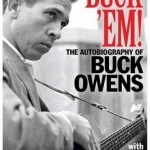
Buck 'Em: The Autobiography of Buck Owens
Buck Owens and Randy Poe
Book
Buck 'Em! The Autobiography of Buck Owens is the life story of a country music legend. Born in Texas...
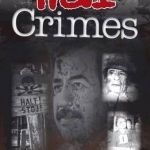
Crimes of the Century: War Crimes
Book
At the beginning of September 2013, top of the international agenda was to stop any further deadly...
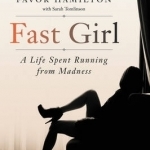
Fast Girl: A Life Spent Running from Madness
Book
NEW YORK TIMES BESTSELLER The former middle distance Olympic runner and high-end escort speaks out...

Business-State Relations in Brazil: Challenges of the Port Reform Lobby
Book
In recent years, the spotlight of international attention on Brazil has often been in the area of...
Henry Mancini: Reinventing Film Music
Book
Henry Mancini, the first publicly successful and personally recognizable film composer in history,...

